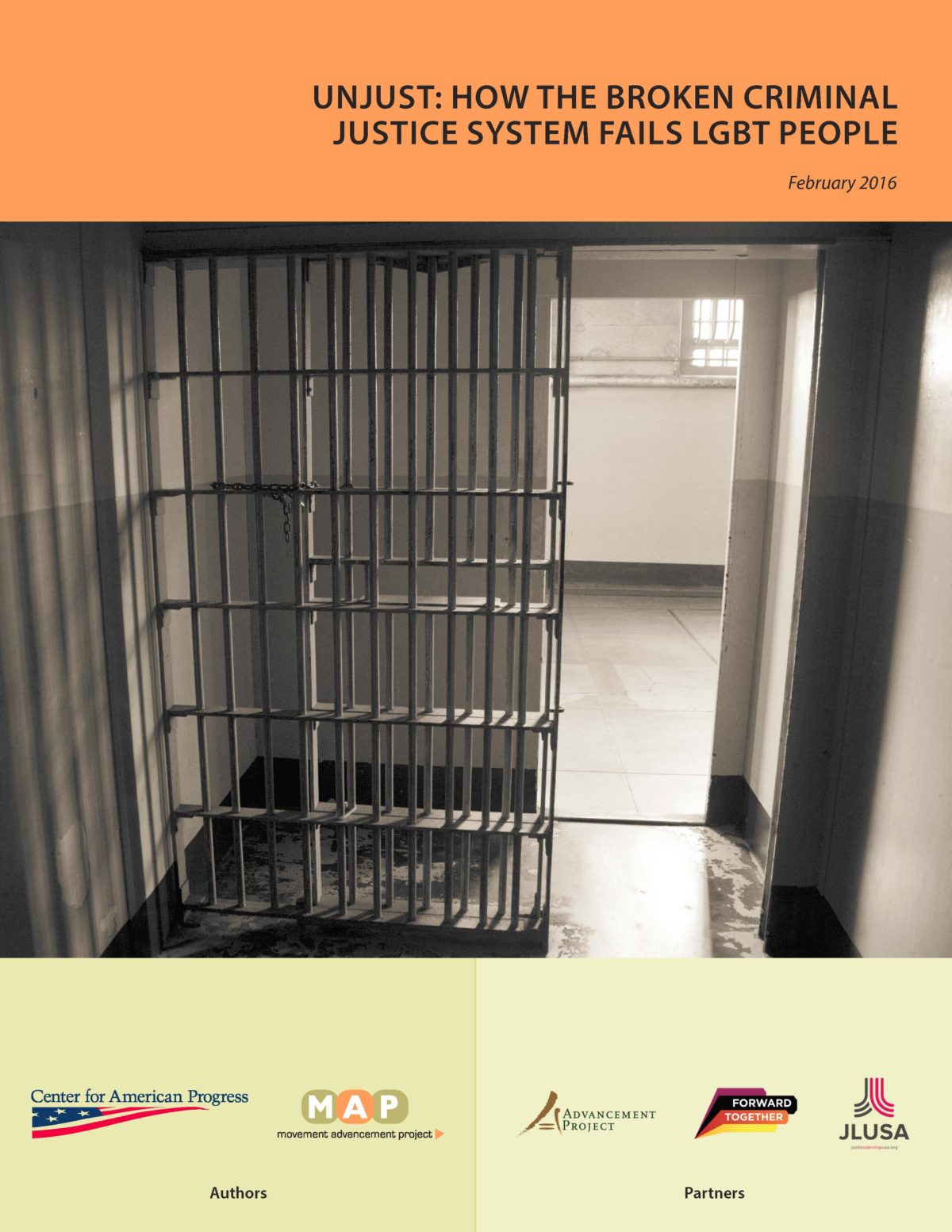
A new report from the independent Movement Advancement Project in Washington DC is shining a light on the plight of LGBT people caught up in the nation’s criminal justice system — and it is not pretty.
“It used to be a crime to be LGBT in the United States, and while police are no longer raiding gay bars, LGBT people, especially LGBT people of color, are still disproportionately pushed into the criminal justice system. They are treated unfairly within the system and in correctional settings, and face extraordinary challenges in rebuilding their lives,” said Ineke Mushovic, Executive Director of MAP.
The report finds that twice as many people incarcerated identify as LGBT or gender non-conforming than Americans who identify as such. The numbers are even more skewed in relation to juveniles, the report found.
“I’m glad that MAP is bringing to light the critical issue of LGBT people in the criminal justice system,” State Rep. Jon Hoadley, D-Kalamazoo, said in an interview with BTL. Hoadley is one of two openly gay state lawmakers working in Lansing. “This report shows that our work is not done.”
He noted that Michigan continues to have laws which are used to discriminate against members of the LGBT and HIV affected communities. He noted the child welfare system in the state continues to foster discrimination and noted Michigan’s HIV-specific criminal laws. Michigan adopted a new law last year which allows private, religious adoption agencies to refuse to help otherwise qualified adoptive parents based on “sincerely held religious beliefs.”
State Sen. Steve Bieda, D-Warren, said the report was important. He’s been working with the GOP majority to address criminal justice reform in the state as the only Democrat on the Senate Judiciary Committee.
“We need to make sure that justice is blind,” Bieda said in a phone interview. “We need to make sure that justice is actually just.”
He called for a repeal of Michigan’s HIV-specific criminal law, which he called “outdated,” and also said the state needs to remove obsolete laws that are no longer enforceable because they have been declared unconstitutional.
“When we’re talking about reforming a complexing system, like this, you need a yes and strategy,” said Hoadley. He called on lawmakers to repeal obsolete laws as well as laws — such as the gross indecency laws — which criminalize otherwise consensual sexual activity between adults.
Bieda said he would like to have representatives of MAP come to a Senate Judiciary Committee to brief state lawmakers on the findings of the report and possible solutions. Hoadley applauded that idea.
“This would be a great opportunity to have a joint committee meeting,” between House and Senate Judiciary Committees, he said. “We could also have policy meetings on this.”
The chair of the Senate Judiciary Committee, State Sen. Rick Jones, R-Grand Ledge, said the Senate cannot solve all the issues with the criminal justice system but did call for more training by law enforcement related to LGBT related issues. He’s a former county sheriff.
“I also support clean slate legislation,” Jones said. Those laws would allow those convicted of non-violent crimes to wipe their records clean after a set amount of time.
Hoadley said Jones’ idea was certainly on track to addressing reintegration of those convicted of crimes and sentenced to prison into society.
“We have to really think about how we integrate people into society after their rehabilitation,” he said. He discussed working with a person living with HIV who was convicted under Michigan’s HIV-specific law. That person was being forced to disclose their HIV status as a result of having to disclose the felony conviction to potential employers. It significantly limited that person’s job prospects.
MAP officials were pleased to hear Michigan lawmakers were taking the report seriously.
“A goal of this report is to lift up the ways in which LGBT people interact with the criminal justice system to ensure comprehensive reforms,” said Naomi Goldberg, Policy Analyst for the Movement Advancement Project. “Legislative efforts to reduce recidivism rates, such as clean slate legislation combined with vital protections against discrimination, would greatly improve the lives of formerly incarcerated LGBT people. And training, ongoing education and improved procedures for law enforcement, court staff, prison and staff, and probation and parole officers would greatly improve the safety of LGBT people.”








